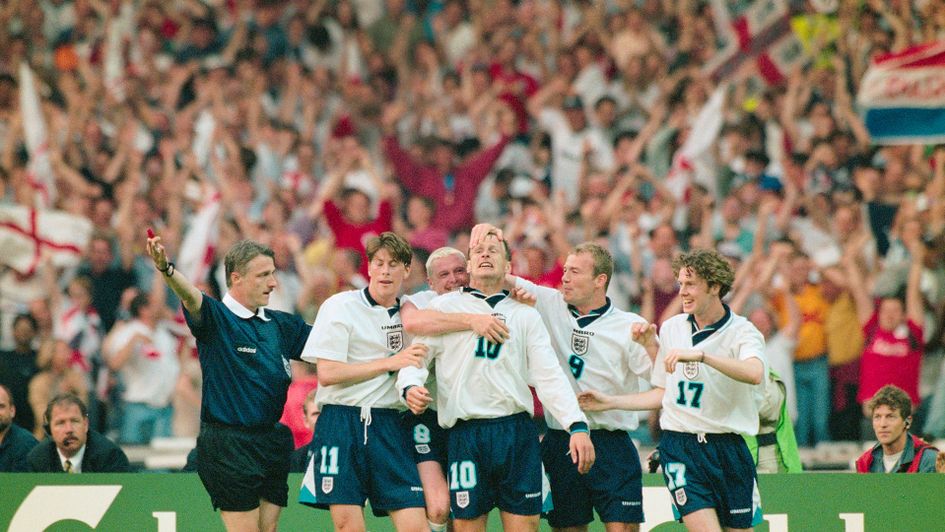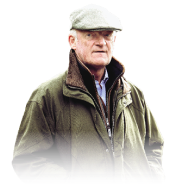In these troubled times let Rob O'Connor take you back to the glorious summer of 1996, when 11 days changed football in England forever.
It’s a welcome fact of life that something so brief can leave a legacy that lasts forever. It helps takes the pressure off when we feel as though we have too little time. There were only 11 days between England’s 2-0 win against Scotland at Euro ‘96 – the day the tournament came alive in the host country – and their semi-final defeat to Germany, days which have stayed imprinted on English culture forever.
Before Euro ’96, football in this country was already well into it’s recovery from the darkness of Heysel, Hillsborough, Valley Parade and the decades of institutional mismanagement that those disasters were the product of. The Premier League had begun its work of de-stigmatizing or in some way re-molding the football-going experience in England; safer, more comfortable stadiums charging higher ticket prices and attracting a different demographic of supporter, hand-picking tropes from an American sports culture that afforded a reduced significance to partisan fan culture and made audiences out of supporters.
Football had cleaned up, its terraces lined in neat plastic seating that made former arenas of violence into mainstream, acceptable spaces for families to gather and enjoy and afternoon out.
Italia ’90 six years earlier had been an important early marker in that transformation. Indeed it’s difficult now to place Italy’s World Cup in such proximity to Hillsborough – only 14 months separated Liverpool’s FA Cup semi-final against Nottingham Forest from the opening ceremony – and in a country still traumatized by the deaths of 39 Juventus supporters at Heysel in 1985. Now, at a time when football has been relegated to an afterthought by the drama and pace of world events, it’s almost hard to imagine that the game picked itself up so quickly and carried on after those two seismic events.
The World Cup in Italy was the thin end of a revolution, the quiet crackling before the pop. The BBC’s use of Pavarotti’s Nessun Dorma in its coverage awakened TV producers to the dramatic potential of music and visual art in lending football a theatrical edge, and at just the moment when Sky were about to sign off on a contract to bring hundreds more broadcast hours to our screens in which to experiment with the new form.
Euro ’96 built on that innovation. The success of Three Lions, itself a spin-off of the culture channeled by Baddiel and Skinner’s Fantasy Football, a close cousin of Britpop, showed how far football was bleeding outwards from the stadiums, where until 1992 it had been largely contained. The rousing sights and sounds of Wembley pounding out the country’s unofficial national anthem ahead of those games against the Netherlands and Germany was a precursor to the transporting power of the sports broadcast, the child of which can be seen in the Anfield RoarTM in 2020 as experienced hundreds or thousands of miles away on TV.
By the summer of 1996, much of the goodwill the England team had won from the nation during the run to the Italia ’90 semi-final had been rubbed away, first by a dismal showing at Euro ’92, then the unforgivable failure to qualify for the USA World Cup two years later. The team hadn’t played a competitive fixture since November 1993. Alan Shearer hadn’t scored an international goal for 21 months.
Then, on the eve of the tournament, the team’s conduct on a boozy night in Hong Kong landed ungraciously on the front pages back in England. Centre-stage in the chaos was Paul Gascoigne, lambasted in the press as the epitome of England’s loutish tendency for self-destruction. The relationship between the team and the nation had rarely been more strained than in the days leading up to the start of Euro ’96.
Then came the opening game, the most hotly anticipated Three Lions game in 30 years. Against Roy Hodgson’s Switzerland at Wembley, England flopped, struck by stage fright on the biggest football occasion for a generation. After the Swiss nicked a deserved 1-1 draw, the press went for the kill, with Gascoigne again the prime target in the crosshair.
The tournament, then, was a restorative moment for England. After the 2-0 win against Scotland, the Daily Mirror published an apology addressed to Gascoigne, the player that had been lambasted for weeks but now, for one moment’s genius at Wembley when he flicked the ball over Colin Hendry and volleyed past Andy Goram, they raised him up a saint.
"Oh brilliant! Oh yes!"#TBT to Euro 96 and some Gazza magic 🤩
— Match of the Day (@BBCMOTD) April 2, 2020
In the absence of live football, we'll be reliving some classic Euro matches as well as vintage World Cups this summer.
More: https://t.co/kmOyTam7AR pic.twitter.com/5iZBujWWiG
The 4-1 win against Holland remains perhaps the second most famous England home win, after the World Cup final 30 years earlier. The quarter-final win against Spain, though a more pedestrian affair than the enduring image of David Seaman saving Miguel Nadal’s penalty would have us remember, was a seismic day for the team and the country. It remains a touchstone moment in England football history.
Euro ’96 was transformative in other parts of Europe, too. Croatia was a country waiting to emerge from a civil war when their team played their first qualifier in September 1994. Their run to the quarter-final, topped off gorgeously by Davor Suker’s chip over the head of Peter Schmeichel as they beat the holders Denmark 3-0 at Hillsborough, was a moment of national renewal that came to the country a few months after the guns stopped. In Turkey too, they relished in making a first appearance on the European stage, even if their brief moment on the main stage was ended at the group stage without a goal scored.
Elsewhere in the Balkans, the tournament marked the end of a golden period. Bulgaria, who had finished fourth at USA ’94, fell at the first hurdle, going out with Romania who couldn’t repeat their own quarter-final success of four years earlier. With world stars Gheorge Hagi and Hristo Stoichkov beginning to age and little sign that their like would be seen again, neither country has matched such heights in the years since.
🥳👌 Happy birthday Karel Poborsky, the scorer of this wonder goal at Euro 96!pic.twitter.com/ipFMpXjijL
— Sporting Life Football (@SportingLifeFC) March 30, 2020
The Dutch camp quickly fell apart, the squad rocked by allegations of a racial divide that had split the team into factions. The team had qualified for the finals only by the skin of their teeth, but made a poor show once they arrived. Edgar Davids was sent home in disgrace; his teammates soon joined him, knocked out in the last eight by France. Italy were back home even sooner, their tournament receiving a set-back it never recovered from when Pavel Nedved, who the country would later adopt as their own, scored to help the Czech Republic to a 2-1 win at Anfield.
Liverpool was one of a handful of cities to show a lukewarm interest in the tournament. Anfield was barely half full as the Czechs played out a 3-3 thriller with Russia, whilst Newcastle’s St James’s Park was similarly empty when Bulgaria beat Romania.
Even the knock-out games struggled to sell, with 15,000 seats left empty at Villa Park when the Czechs beat Portugal and, incredibly, another 12,000 for the semi-final between France and the Czech Republic. Football may have come home, but not many turned out to welcome it back.
The tournament, then, was perhaps more valuable for what it gave us in the years since than in the moment; a competition characterized by low attendances and defensive play, one that provided few memorable games and fewer enduring stories.
And yet it has endured. It sticks out as a defining moment in the 90s revolution in the way football was played, produced and consumed. For England, it was three weeks that will last forever.
Follow Sporting Life on social - find us on Facebook here or tweet @SportingLifeFC
Related football content
- Laura Woods column: How's the bacon?
- PODCAST: Premier League Weekly
- When Liverpool last won the title...
- Football: Legal questions answered
- TV's 3pm blackout lifted
- Premier League: Data predicts final standings
- Le Tiss: The ultimate one-club man
- What has happened to Coutinho?
- Who is the PL's best goalkeeper?
- Who is the PL's best defender?
- Who are the PL's best midfielders?
- Who is the PL's best number nine?
- The best sporting documentaries
- Paper Talk - latest transfer gossip









